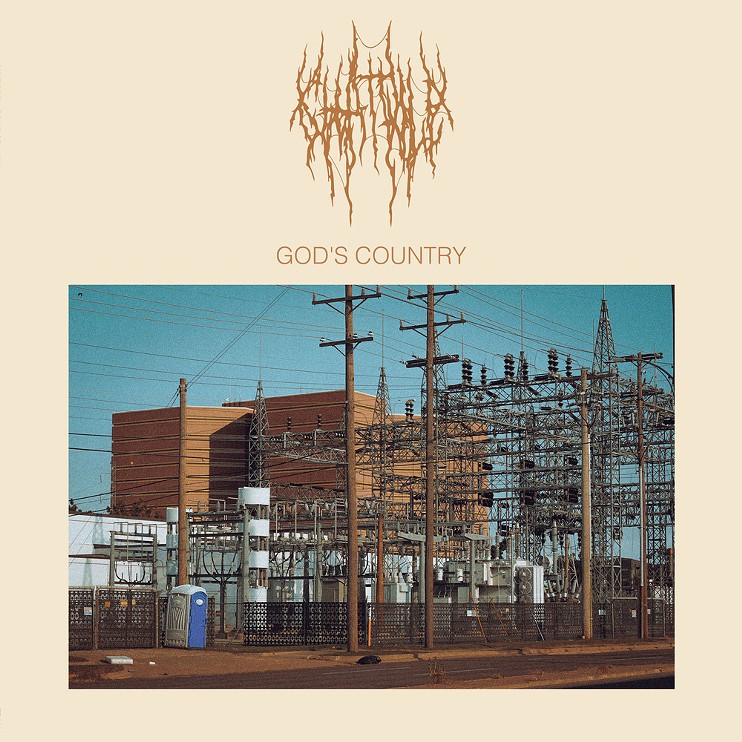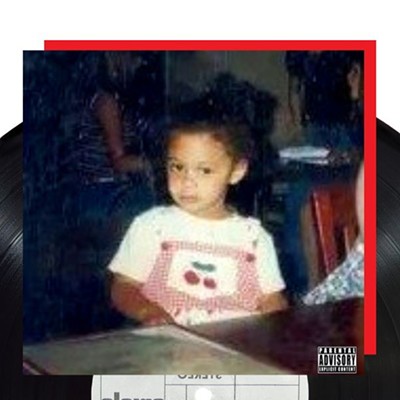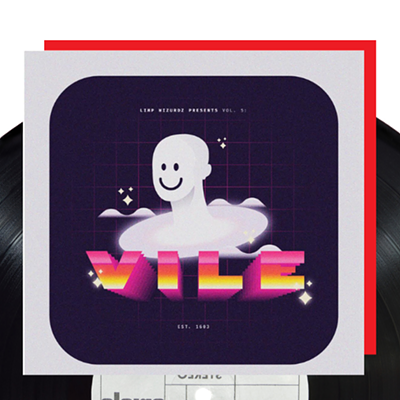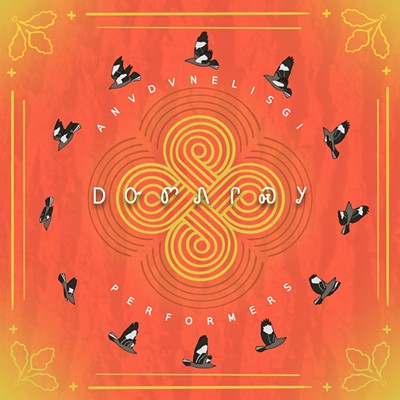Picture — or don’t — a poisoned, discolored body collapsed on concrete, convulsing into an early grave as horrors flash before its blurred eyes. This is the essence of Chat Pile.
Drawing metaphors between cinematic body horror and the death throes of late-stage capitalism, the decidedly pessimistic quartet of Oklahoma City musicians has no shortage of world-weary source material for its morbid narratives. The band’s name, after all, is a reference to literal piles of toxic waste in ghost town Oklahoma which preserve the dangerous fingerprints of careless industrialism. What sets Chat Pile apart, though, is not only its choice of tale. It is the telling.
On its new LP, God’s Country, the noise rock outfit plunges into a quagmire of unsettling new songs, which arrive after years of international attention in subterranean pockets of the music world. This is Chat Pile’s first proper studio album following 2019’s debut pair of acclaimed EPs, This Dungeon Earth and Remove Your Skin Please. Since then, the band has kept hardcore fans engaged with a 7” split vinyl, a film score, and an abundance of limited run merchandise. If anything, this has only ramped up the anticipation for the band’s first full-length outing, and on God’s Country, the wait pays off.
At nine tracks and about 40 minutes, the LP doubles down on the group’s signature heavy, industrial noise rock sound and unhinged performances. Vocalist Raygun Busch throws himself into lyrics like an intoxicated person crashing through a window, blood and saliva oozing through gritted teeth in a style that can barely be called singing. Bassist Stin lugs the low end like a serial killer dragging an axe, scraping it against bumps in the pavement. The band is animalistic, characterizing the artifice of civility as it implodes within its subjects.
No stranger to the concept of literally wearing another person’s skin, Chat Pile does it in an artistic way time and again by empathizing with its villainous protagonists and understanding how emotional pain fuels vicious cycles of violence. It may be what the band does best. Through harrowing expressions of crises, it brings tragedies, both factual and fictional, from their societal fringes to a blood red spotlight.
“The Mask,” for example, recounts the Oklahoma City Sirloin Stockade murders of 1978 from the killers’ perspective, borrowing the band’s recurring meat symbolism to cast a twisted new meaning onto the restaurant chain’s name. “Pamela” pulls off the incredible feat of making Friday the 13th interesting again by expressing its villainous motivation through a new emotional lens. Both are prime examples of the band’s songwriting, which rarely divulges its concrete details, only hinting at the horrors they reference so that the unspeakable unknown can amplify their fearsomeness.
Chat Pile is always so within reach of metaphor that political interpretation is inevitable, and it leans into this with the album title. God’s Country sarcastically correlates its tortured, sociopathic nature to the United States, the Bible Belt, and conservative values at large. It does not get more blatant than “Why,” a song which dons the persistence of a 7-year-old child to castigate the systems that perpetuate homelessness.
However, it is the raw viscera that sticks the most. “Anytime,” for instance, has a plot that gun control activists can pull from, but the primary purpose of the track is not to speak on that issue but to capture the surreal, hypnotizing shock of a sudden murder’s immediate aftermath. For all of its brilliant narrative takes, God’s Country ultimately does what music does best. It conveys that which cannot be fully expressed through words.
Chat Pile deftly describes this album as “Oklahoma’s specific brand of misery,” and it certainly feels it. In this regard, God’s Country may be some of the most Oklahoman music ever made and, by extension, a vital pulse of what it means to be America’s heartland. It suggests a state of emergency.










